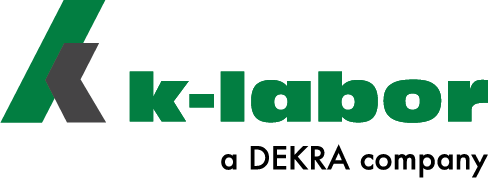We are expanding
our material know-how
and test services with
the DEKRA laboratories!
Find out more in our
press release.
News:
Titanium alloys and titanium purity of medical instruments and implants according to
Accredited test laboratory
for materials testing, product testing & failure analysis.
Your specialist for metals,
plastics, elastomers.
We are expanding
our material know-how
and test services with
the DEKRA laboratories!
Find out more in our
press release.
News:
Titanium alloys and titanium purity of medical instruments and implants
according to DIN EN ISO 832
Accredited test laboratory
to DIN EN ISO / IEC 17025.
Your specialist for metals,
plastics, elastomers.
Medical technology. Testing of medical devices.
Innovative medical devices include many diverse components and parts made from a wide variety of polymers, metal alloys and additional composite materials. These materials offer countless significant advantages, such as smaller component sizes and longer durability. But each material also has very specific chemical and physical characteristics that can affect the health and protection of patients and users alike.
As part of our testing of medical devices, we examine these materials through comprehensive material testing, in which chemical and physical properties are evaluated either directly on the components or using extracted samples. Testing is carried out using state-of-the-art techniques such as microscopy, spectrometry and numerous mechanical methods. We also use environmental simulations to test the service life and functionality of a medical device under extreme conditions.
As part of comprehensive medical device testing, these and additional methods enable our medical device testing laboratory to provide precise information on the chemical composition and usability of medical materials.
1. Media resistance testing of medical devices
Regular cleaning and disinfection of medical devices is essential to ensure the highest standards of hygiene. The materials used must be able to withstand repeated contact with cleaning agents and disinfectants without losing their functionality or safety. In our test laboratory for medical devices, we offer specialized procedures to evaluate chemical resistance in accordance with relevant DIN EN ISO standards.
Our testing services at a glance:
- Media resistance of plastics: We test the resistance of plastic components to various disinfectants and cleaners to ensure that no material degradation or discoloration occurs – an essential part of any sound medical device testing.
- Media resistance of surfaces: Surfaces of medical devices, especially those with coatings or special finishes, are tested for their resistance to chemical influences.
- Corrosion testing of metal components: Metallic parts of medical devices, such as surgical instruments, are tested for susceptibility to corrosion to ensure their longevity and safety.
- Failure analysis of medical devices: In the event of material failure or damage, we carry out detailed analyses to identify the causes and make recommendations for material improvements or alternative cleaning procedures.
Relevant standards:
Our test methods are based on recognized DIN EN ISO standards that define specific requirements and test methods for the resistance of medical devices. For example, DIN EN ISO 21530 describes test methods for determining the resistance of materials to chemical disinfectants used for external surfaces of dental equipment.
By complying with these standards, we ensure that your medical devices meet the highest quality and safety standards and withstand the challenges of everyday clinical practice.
Rely on our expertise in medical device testing – for maximum safety, reliability and longevity of your products.
2. Failure analysis of medical devices
Medical devices are subject to high mechanical, thermal and chemical stresses in daily use. Damage to these products can have serious consequences for patient safety and functionality. In our specialized testing laboratory for medical devices, we carry out detailed damage analyses to systematically identify the causes of material failure and uncover potential for improvement.
Our services in the failure analysis of medical devices:
- Microscopic examinations:
Using high-resolution light and scanning electron microscopy, we analyze cracks, material fatigue or surface degradation.
- Chemical analyses:
We investigate material changes, residues or interactions with disinfectants and cleaners using spectroscopic and chromatographic methods.
- Mechanical tests:
Load tests and hardness measurements provide information about changes in the mechanical properties of materials.
- Corrosion tests:
Metallic components such as surgical instruments or implants are tested for corrosion damage caused by environmental influences and cleaning processes.
- Fracture and crack analyses:
Using fractography and stress analyses, we identify causes of fracture and evaluate possible design or material defects.
Relevant norms and test standards:
Our tests are based on recognized standards such as
- DIN EN ISO 13485: Requirements for quality management systems for medical devices
- DIN EN ISO 10993-9: Evaluation of material degradation of medical devices
- ASTM G65: Wear resistance of metallic surfaces
With our expertise in materials testing and failure analysis, we support manufacturers, operators and users of medical devices in minimizing safety risks and optimizing product quality.

